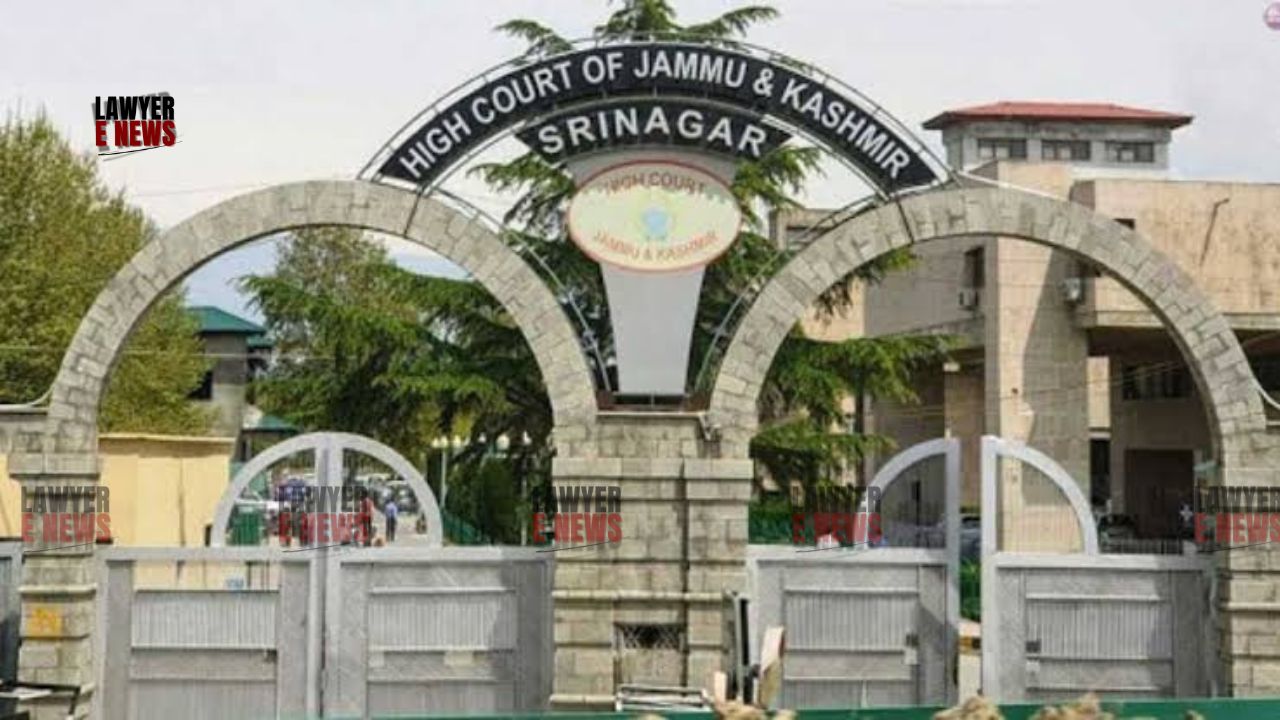-
by Admin
15 February 2026 5:35 AM



High Court of Jammu & Kashmir and Ladakh in CRA No. 11/2018 overturned the conviction of Raj Kumari, who had been sentenced to life imprisonment for the murder of Soma Devi in 2012. The Court found significant discrepancies in the prosecution’s case, including weak evidence regarding the "last seen" theory and improper recovery of stolen ornaments. The judgment emphasized that the prosecution had failed to establish a complete chain of circumstances linking the accused to the crime.
The prosecution alleged that Raj Kumari killed Soma Devi on the night of October 23, 2012, using a brick and stole her gold ornaments, which were later recovered from a goldsmith. The trial court convicted her based on circumstantial evidence, including the "last seen" theory and the recovery of stolen items. Raj Kumari appealed the conviction, arguing that the evidence was flawed and failed to prove her guilt beyond a reasonable doubt.
The key issue was whether the circumstantial evidence presented by the prosecution was sufficient to sustain a conviction for murder. The prosecution relied on three main circumstances:
Raj Kumari was allegedly last seen with the deceased.
Her disclosure led to the recovery of stolen ornaments.
The stolen items were identified by the deceased’s daughter.
The High Court, led by Justice Rajesh Sekhri, dismantled the prosecution's case. The Court found inconsistencies in the testimony regarding the "last seen" theory, with key witnesses contradicting each other. The Court also ruled that the disclosure and recovery of the stolen ornaments were flawed, as they were not conducted in accordance with Section 27 of the Indian Evidence Act. Furthermore, the prosecution failed to establish a continuous chain of events linking Raj Kumari to the murder.
The Court critically examined the evidence and found multiple discrepancies. Witnesses gave conflicting statements about whether Raj Kumari was seen with the deceased shortly before her death. Additionally, the recovery of stolen items from the goldsmith was not properly documented, and the investigating officer admitted that key procedures were not followed.
The Court emphasized that, in cases based on circumstantial evidence, the prosecution must establish a chain of events that points conclusively to the accused's guilt. Since the prosecution failed to do so, the Court allowed the appeal and acquitted Raj Kumari.
The High Court’s decision highlights the importance of thorough and credible evidence in cases relying on circumstantial proof. The failure to establish a complete chain of events consistent with the accused’s guilt led to the acquittal of Raj Kumari, who had spent years in prison under a flawed conviction.
Date of Decision: September 27, 2024
Raj Kumari v. State of J&K
